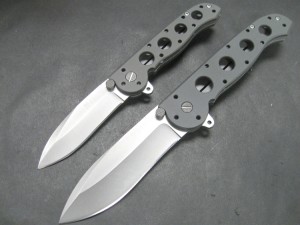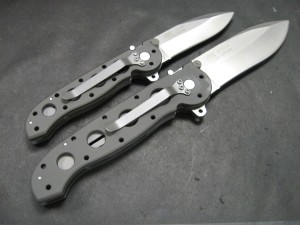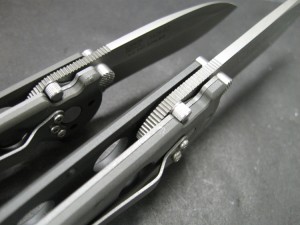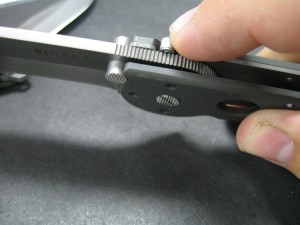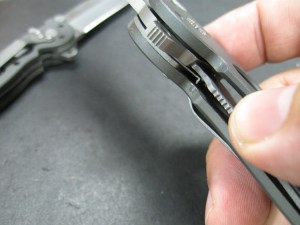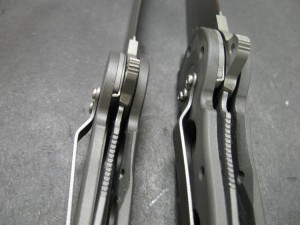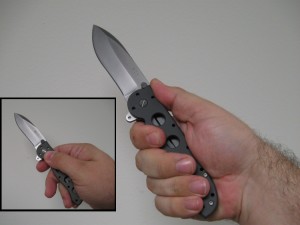The Columbia River Knife and Tool line of M21 knives builds on the success of their workhorse M16 series of tactical folders. The handles and features are the same; the
blade is, instead of a spearpoint, a modified drop point with very good belly for slicing. There are two M21 lengths available, in three inches and just under four inches. Either can be had with partial serrations or without. The knives’ official specifications are as follows:
M21-14 (partially serrated) and M21-04 (plain)
Blade Length: 3.875 inches
Blade Steel: AUS 8
Closed Length: 5.375 inches
Overall Length: 9.25 inches
Weight: 5.5 ounces
M21-12 (partially serrated) and M21-02 (plain)
Blade Length: 3.00 inches
Blade Steel: AUS 8
Closed Length: 4.25 inches
Overall Length: 7.25 inches
Weight: 3.2 ounces
Some CRKT knives feature the LAWKS or the Auto-LAWKS, the manual and spring-loaded versions of the Lake and Walker Knife Safety. This is a small piece of metal that shifts into position to block the liner lock and prevent it from closing. The M21 models pictured here have manual LAWKS safeties, meaning these must be thumbed on by the operator. The automatic LAWKS, by contrast, snaps into place as soon as the blade opens on those CRKT knives that have it. I believe all newer M21 models incorporate the AutoLAWKS (and have for a while now as of this writing).
The AUS 8 blades are ground on both sides and slightly recurved in profile. They slice very well through a variety of test media. The relatively thick point of the blades prevents them from penetrating as deeply as do their spearpoint M16 cousins, but the knives perform perfectly adequately for both utility and self-defense purposes.
Each blade is equipped with the “Carson Flipper,” an excellent feature that allows the user to snap the blade open with one finger. When deployed, the flipper forms a guard and protects the user’s fingers from an accidental blade closure (not to mention operating as a guard in use, which is the point). The ambidextrous blade stops/thumb pegs can be used to open the knives, but the leverage required makes this a fairly awkward and painful operation. It’s far better to use the flipper.
The blade of the larger M21 is heavy enough that a single push of the flipper snaps it easily into position. The smaller blade usually opens halfway with a push of the flipper. The blades lock open positively with no play. The liners engage the blade tangs fully at the far left, leaving plenty of room for wear.
The CNC-machined handles of the M21 samples pictured here are of 6061 T6 aluminum, anodized to achieve the charcoal gray color. The surfaces of the handles is relatively smooth but does not feel too slippery, and the contours of the handles make them comfortable and secure. Serrations on the back of the blade and on the liner help improve grip traction.
Each knife is configured for tip-down, right-hand carry only. The relatively thin pocket clips had good tension out of the box, but I would prefer clips that are just a little bit wider.
The M21 knives aren’t the most glamorous or exotic knives in the CRKT line-up, but they’re the sort of all-purpose, well-thought-out, affordably functional tactical folders that helped put the company on the map in the first place.
